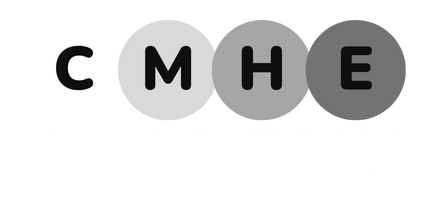2024 DBT Workshops
SPECIALIST TRAINING & DEVELOPMENT
2024 RO DBT Workshops
DEVELOP YOUR DBT APPROACH
A range of workshops, courses and webinars developed by the Australian DBT Institute.
DBT Webinars
DEVELOP A RADICALLY OPEN DBT APPROACH
A range of workshops, courses and webinars in collaboration with Radically Open Ltd & ADBTI!
DBT Intensive
SAFE TRAUMA INFORMED PRACTICE
A range of workshops, courses and webinars in Somatic Trauma Therapy and Stabilisation Based Therapy!
International Credentialing Committee Categories - Peer - Skills Trainer - Practitioner - Advanced Practitioner - DBT Fellow
Credentialing in Dialectical Behaviour Therapy returns in 2024

We help you reach your professional goals
Australian DBT Institute Workshops
2024 DBT Training and In-person Workshops
DBT in-person Workshops are delivered on the Gold Coast, Brisbane, Melbourne and Sydney!
Write your awesome label here.
CPD Opportunities in a Range of Therapeutic Approaches!
Experienced mental health professionals delivering professional development in Australia, USA, Europe, and South East Asia.
Dialectical Behaviour Therapy (DBT)
Developed by Dr. Marsha Linehan and published in the 1980s, this approach has evidence for individuals with maladaptive under control presentations. DBT’s focus is on increasing an individual’s capacity to regulate emotions, tolerate distress, and reduce impulsivity.
Stabilisation Based Therapy (SBT)
Developed by Dr. Peter King, SBT is an approach that has been successfully applied to individuals who experience acute distress, crisis, or destabilisation in a range of clinical settings. SBT aims to create a strong foundation of stability and symptom management before addressing deeper underlying issues through the integration of other therapeutic modalities

Radically Open DBT
Developed by Dr. Thomas Lynch and published in the early 2000s this approach has evidence for individuals with maladaptive over control. RO-DBT’s focus is on increasing an individual’s awareness of social signalling, connecting with their ‘tribe’, and increasing a capacity for openness.
Trauma Informed Care
Trauma informed care focuses on addressing the after-effects of trauma and enabling recovery. At the CMHE Academy a range of approaches are explored including Somatic Trauma Therapy, developed by Babette Rothschild, and trauma informed adaptions of Dialectical Behaviour Therapy developed by Dr. Peter King and his team at the Australian DBT Institute.
Australian DBT Institute and Radically Open Ltd Collaboration
2024 Radically Open DBT Training Program
Dr. Sophie Rushbrooke will return to Australia in April 2024 to deliver a ranged of RO DBT Programs!
Write your awesome label here.
We are here to create new possibilities
We aim to change the world of online mental health education. We break borders and increase accessibility to address the urge for quality healthcare among all communities.
Contextual
Operate with confidence by reinforcing core clinical concepts and mastering the use of evidence informed approaches in your facility by applying the knowledge gained in our online trainings.
Forward Thinking
We believe in our own on-going education and keeping up with state-of-the-art approaches and industry standards. This ensures health professionals receive quality instruction while earning the credentials they need.
Quality Content
We understand that staying at the top of your profession means accessing education and earning certificates efficiently and effectively.
Level Up Your Skills

Education & course content highlights
\Learnworlds\Codeneurons\Pages\ZoneRenderers\CourseCards


